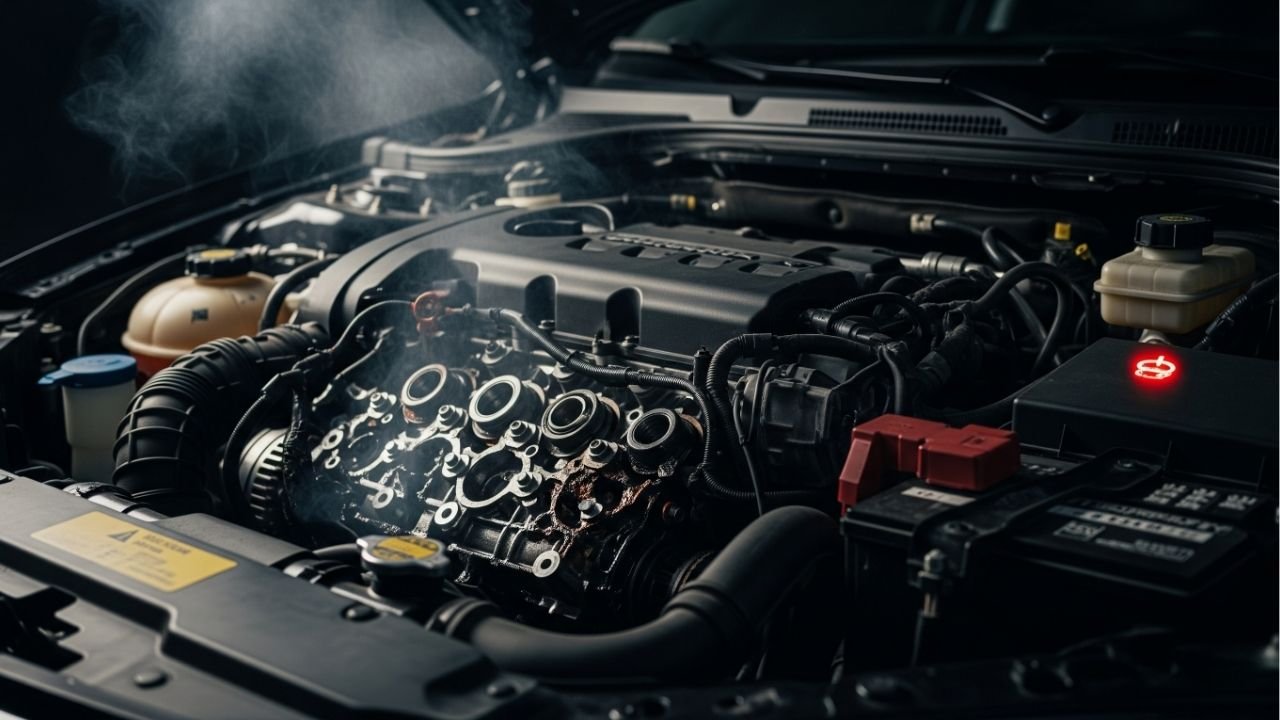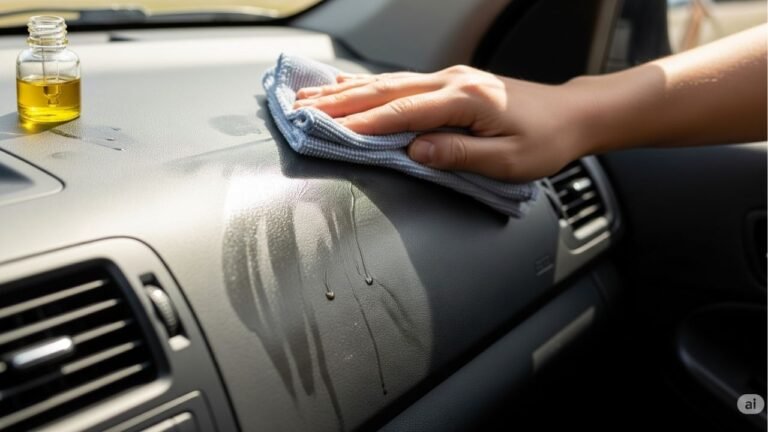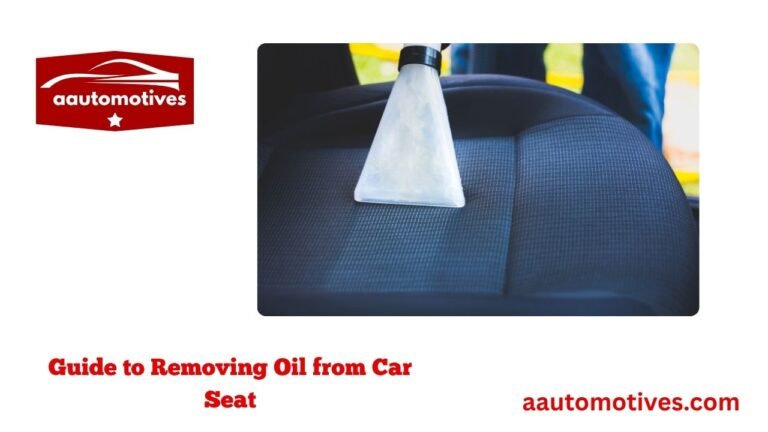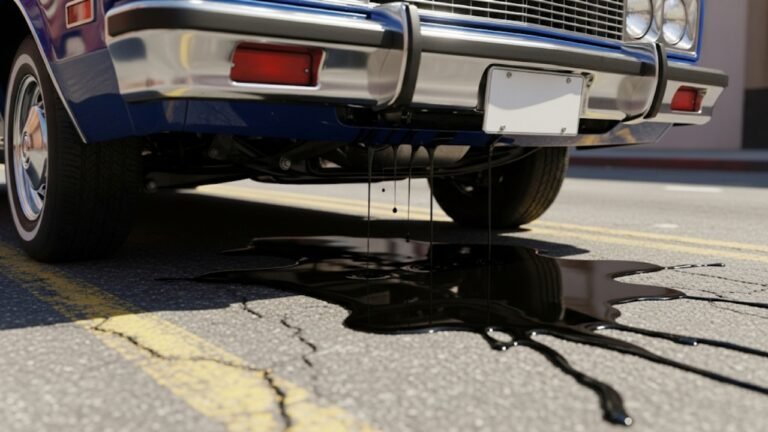Will Your Car Start If It Has No Oil? Here’s What You Need to Know

Imagine you’re in a rush—maybe you’re late for class, a meeting, or Jummah prayer—and you turn the key in your car. It coughs, hesitates… and maybe starts. Or maybe not. Then a scary thought pops into your head: “Wait—did I check the oil last week?”
You’re not alone. Many drivers forget about the engine oil until the warning light blinks. But what actually happens if your car has no oil? Will it start? This isn’t just a basic car question—it’s something that could mean life or death for your engine.
In this article, we’ll break it down in a simple, friendly, and relatable way. We’ll talk about personal experiences, facts, emotional consequences (like the frustration of a dead engine), and practical steps. We’ll also dive into the science behind engine lubrication, and answer the big question:
If your car has no oil, will it start?
Let’s begin the journey under the hood.
In This Article
- 1 Why Engine Oil Is the Lifeblood of Your Car
- 2 Can a Car Start Without Oil? The Short Answer
- 3 What Happens Inside the Engine Without Oil?
- 4 Real-Life Example: My Cousin’s Costly Mistake
- 5 Common Signs of No Oil in Your Engine
- 6 Why You Might Have No Oil (Without Knowing It)
- 7 What to Do If You’ve Started the Car With No Oil
- 8 How Much Oil Does Your Car Need to Be Safe?
- 9 Bullet Points: Key Takeaways
- 10 Preventing Oil-Related Engine Damage: Practical Tips for Everyday Drivers
- 11 Digging Deeper: How Does Engine Oil Actually Work?
- 12 How Modern Cars Handle No Oil Situations
- 13 FAQ: Common Questions About No Oil and Engine Damage
- 14 Let’s Talk Emotion: Why We Delay Oil Checks (And How to Break That Habit)
- 15 How to Choose the Right Oil for Your Car
- 16 The Cost of Ignorance: A Simple Mistake That Costs Thousands
- 17 Conclusion: A Simple Act That Protects Your Car’s Heart
Why Engine Oil Is the Lifeblood of Your Car

Here’s why it’s important:
-
Lubrication: Oil keeps the metal parts in your engine from rubbing and overheating.
-
Cooling: It helps move heat away from the engine’s core.
-
Cleaning: Oil traps dirt, metal shavings, and gunk to prevent damage.
-
Protection: It creates a barrier between parts, reducing wear.
Your car isn’t just “mechanical”; it’s like a living system. Ignore the oil, and it gets sick fast.
Can a Car Start Without Oil? The Short Answer
Let’s answer the burning question:
If your car has no oil, will it start?
Yes, it might start. But it won’t run for long—and you’ll probably destroy your engine.
Sounds scary? It should. A dry engine is like running a marathon with no water—pure torture.
Technically, the starter motor and battery don’t rely on oil. That’s why the car can crank and even start without oil. But once it’s on, the engine components move at high speed, and without oil, they scrape against each other. In just 15 to 30 seconds, serious damage can happen.
Some cars, especially newer models, have sensors that refuse to start the engine if oil pressure is dangerously low. That’s your car trying to save itself.
What Happens Inside the Engine Without Oil?
Imagine frying food in a pan with no oil—burnt, right? Now imagine metal pistons slamming into a metal engine block 6,000 times a minute without lubrication.
Here’s a simple breakdown of the disaster that unfolds:
| Time Without Oil | Damage Level | What Happens |
|---|---|---|
| 0–15 seconds | Initial wear begins | Metal starts to grind; friction spikes |
| 15–30 seconds | Critical heat builds | Pistons, rods, valves overheat |
| 30–60 seconds | Engine seizing begins | Parts warp, seize, break |
| 1–2 minutes | Engine may fail completely | Full breakdown likely |
Running your engine without oil is like playing with fire. Even if it runs for a bit, the cost could be massive: a full engine replacement, which can run into thousands of dollars.
Real-Life Example: My Cousin’s Costly Mistake
Let me tell you a quick story. My cousin Farid, a university student in Dhaka, once ignored the low oil light. “It’ll be fine till next week,” he said. He drove from Mymensingh to Uttara for a weekend hangout. Halfway there, smoke started puffing from under the hood.
The engine had completely seized. The repair bill? Over 2.5 lakh taka. That’s more than a year of tuition!
This is why the question “if your car has no oil will it start” isn’t just about starting—it’s about what happens after it starts.
Common Signs of No Oil in Your Engine
Don’t wait until it’s too late. These signs scream “Check your oil—NOW!”
-
Oil pressure warning light (usually red or orange)
-
Ticking or knocking sounds
-
Burning smell
-
Overheating
-
Engine misfires or stalls
If you notice any of these, stop the car immediately and check the oil level. It could save you thousands.
Why You Might Have No Oil (Without Knowing It)
Sometimes, you didn’t even do anything wrong—and yet your car’s out of oil. Here’s why:
-
Oil leaks: Common in older cars. You’ll see black puddles under your car.
-
Burning oil: Some engines burn oil internally. You won’t see it, but it’s gone.
-
Neglect: You forgot to change the oil for months.
-
Faulty oil pump: Even if there is oil, the pump isn’t pushing it through the engine.
Pro tip: Always check your oil every two weeks or before a long trip. Takes two minutes—can save your engine.
What to Do If You’ve Started the Car With No Oil
It’s not the end of the world—yet. If you realized it early, here’s what to do:
-
Turn off the engine immediately.
-
Check the oil level using the dipstick.
-
Add oil if it’s low or dry.
-
Listen for weird noises after restarting.
-
Visit a mechanic for a full inspection.
Do not keep driving. Even if it sounds fine, internal damage might already be done. Get it checked.
How Much Oil Does Your Car Need to Be Safe?
Each car is different, but here’s a rough guide:
| Car Engine Size | Oil Required (Liters) |
|---|---|
| 1.0L – 1.6L | 3.5 – 4.5 |
| 1.6L – 2.5L | 4.5 – 5.5 |
| 2.5L – 4.0L | 5.5 – 6.5 |
| 4.0L+ (SUV/Truck) | 6.5 – 8.0+ |
Check your owner’s manual for exact specs.
Bullet Points: Key Takeaways
-
If your car has no oil, will it start? Yes, but you’re risking engine death.
-
Oil is essential for engine lubrication and cooling.
-
Newer cars may not start if oil pressure is too low.
-
Just 30 seconds of running with no oil can cause permanent damage.
-
Always check your oil regularly to avoid disaster.
-
If you hear knocking, overheating, or smell burning, check oil ASAP.
-
Fixing an oil-starved engine can cost thousands or even total the car.
Preventing Oil-Related Engine Damage: Practical Tips for Everyday Drivers
Sometimes we get so caught up in everyday life—exams, work, family, deadlines—that we forget about the little things. But in the case of your car, those “little things” (like engine oil) are what keep everything moving smoothly.
Here are some real-world, foolproof ways to make sure your car never runs dry on oil:
1. Check the Oil Every Two Weeks
Use the dipstick—it’s not hard:
-
Let the engine cool down.
-
Pull out the dipstick, wipe it clean, reinsert it fully.
-
Pull it out again and look at the oil level. It should be between the two holes/lines.
-
If it’s low, top up immediately.
2. Follow the Manufacturer’s Schedule
Your owner’s manual isn’t just for show. It tells you exactly when to change your oil, usually every 5,000 to 10,000 km, depending on whether it’s synthetic or regular oil.
3. Look Under the Car
Any oil stains or puddles? That could be a leak. If it smells like burnt oil after driving, it could also mean your car is burning oil.
4. Pay Attention to the Oil Light
The oil pressure light is like your heart rate monitor—don’t ignore it. If it flashes while driving, stop and check things.
5. Use the Right Type of Oil
Always use the oil grade recommended for your car. Using the wrong type can mess with oil flow and protection, especially in extreme temperatures.
Digging Deeper: How Does Engine Oil Actually Work?
Alright, let’s get nerdy for a moment—but in a fun way.
Think of oil as a magic sliding potion. Inside your engine, metal parts are moving thousands of times per minute. Without oil, they’d clash like swords in a fight. But oil smooths things over—it forms a slippery film between surfaces, reducing direct contact.
It also:
-
Dissipates heat from the engine block
-
Suspends contaminants like dust or carbon
-
Protects metal surfaces from rust and wear
If your car has no oil, even for a minute, all these protective roles vanish. That’s why you might hear knocking, see smoke, or—worst case—end up with an engine that won’t even turn over.
How Modern Cars Handle No Oil Situations
Today’s cars are smarter than ever. Many models have oil level sensors and low-pressure warnings that prevent you from starting the engine when it’s not safe.
Some cars may:
-
Display a “Low Oil Pressure” warning on the dashboard
-
Go into limp mode to protect the engine
-
Completely disable ignition until oil is added
If your car doesn’t start and you’re wondering, “Is it the oil?”, check the dashboard first. Then check the dipstick.
FAQ: Common Questions About No Oil and Engine Damage
Let’s answer some of the most frequently asked questions people have when they’re stuck, stressed, and smelling smoke.
1. What happens if I accidentally drove my car with no oil?
Even a few minutes of running with no oil can cause damage. If this happened, stop the engine and get a mechanic inspection immediately. Internal components might be damaged already.
2. Can you add oil to a hot engine?
Yes, but carefully. If the engine is hot, wait a few minutes to avoid splashes or burns. Then slowly pour in the oil and avoid overfilling.
3. Can an engine be fixed after running with no oil?
Sometimes. If damage is minor (scratches, overheating), a repair is possible. But if pistons seized or metal warped, a full engine replacement might be needed.
4. How do I know if my engine is damaged from no oil?
Look out for:
-
Knocking or ticking sounds
-
Poor acceleration
-
White smoke from the exhaust
-
Warning lights that stay on
Get a compression test and internal inspection to be sure.
5. Is it better to tow the car or drive it with low oil?
Always tow. Driving even 500 meters with no oil can destroy the engine completely. Don’t risk it.
Let’s Talk Emotion: Why We Delay Oil Checks (And How to Break That Habit)
Now let’s get real. Why do we skip oil checks?
Because life gets busy. We think, “It’ll be fine. I just changed it 3 months ago.” But just like skipping a doctor’s check-up, it can backfire—hard.
I’ve been guilty too. Once I delayed an oil change before an Eid trip, thinking nothing would happen. But halfway down the Dhaka–Chittagong highway, my engine overheated. Luckily, I caught it before serious damage. Lesson learned.
Make oil checks a monthly habit—like brushing your teeth. It’s quick, easy, and could save you a massive headache.
How to Choose the Right Oil for Your Car
There’s no one-size-fits-all when it comes to engine oil. Here’s a simple guide to help you decide:
| Type of Oil | Best For |
|---|---|
| Conventional Oil | Older cars, low-mileage drivers |
| Synthetic Oil | Newer engines, extreme temperatures |
| Synthetic Blend | Balance of performance and affordability |
| High Mileage Oil | Cars over 120,000 km |
Bonus Tip: Always check your manual or ask your mechanic before switching oil types.
The Cost of Ignorance: A Simple Mistake That Costs Thousands
Let’s say you skip oil checks and your engine seizes. Here’s what you might face:
-
Towing: ৳3,000–৳7,000
-
Engine Inspection: ৳1,500–৳3,000
-
Engine Rebuild: ৳80,000–৳1,50,000
-
Engine Replacement: ৳1.5–৳3.5 lakh
All of this… for not spending ৳500–৳800 on an oil change. Crazy, right?
Conclusion: A Simple Act That Protects Your Car’s Heart
So, let’s return to the big question:
If your car has no oil, will it start?
Yes, it might start—but that doesn’t mean it should. Driving with no oil is like sprinting barefoot on glass. You’ll go for a while—but it’ll hurt, and you won’t last long.
Cars, like people, need care, attention, and the occasional check-up. Oil is simple to manage, and yet it’s one of the most critical components keeping your car alive.
If you take just 5 minutes a month to check your oil, you’ll avoid breakdowns, stress, and a mountain of repair bills. Your car will thank you—and so will your wallet.






